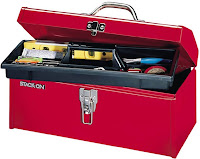 As students return back to the college lecture halls and freshmen begin a life long journey getting acquainted in their new dorm rooms, a common question always comes up, “Now what?” For the upper classmen, they’re halfway through their college career and the idea of getting a job is finally sinking in. For the lower classmen, they’re wondering how they get started and where college might take them. Below is a great way getting started for every level.
As students return back to the college lecture halls and freshmen begin a life long journey getting acquainted in their new dorm rooms, a common question always comes up, “Now what?” For the upper classmen, they’re halfway through their college career and the idea of getting a job is finally sinking in. For the lower classmen, they’re wondering how they get started and where college might take them. Below is a great way getting started for every level. Freshmen
In retrospect, freshmen year is really the time for student to explore their options and have some fun. Now just don’t let it get out of hand or you’ll end up where I was trying to play catch up for the rest of the year. Transitioning from high school to college can be quite difficult since for many of you it’s your first time on your own and like I had mentioned in a previous article, high school study skills are sub-par. This is also the time to back track and make sure the major you have chosen is the right one for you. Take classes in other fields that interest you as a way to explore other majors. If you want to switch majors this is the best time to do it as you haven’t taken many classes and transitioning from one to another will be quite simple. The most important thing that a freshman can accomplish is to establish steady study skills and get your GPA up. If you’re really ambitious, go visit a career fair and just orient yourself with companies that show up. There’s no pressure to talk to recruiters and it’s a great way to get some free stationary items.
Sophomore
Now that you’re back from your first year of college and finally ready to take the world on, you’re wondering what to do next. My suggestion? Start networking! Join a professional club related to your field on campus and start socializing with other students. It never hurts to get started and you can even get a leg up on the competition. Another great way to begin networking is meeting recruiters. Now many companies don’t tend to hire interns who have only completed their sophomore year, but sometimes they’ll find the need for someone to complete less glamorous jobs. But hey, job experience is job experience and any recruiter can see the effort you’re putting into your own career. Even if you can’t find an internship with a particular company it never hurts to ask more about their company and what kind of steps you should take between now and when you’re looking for an internship to better secure one.
Junior
To me junior year is where your career really begins to take off. Now that you’re going to complete some upper division course work, you’ve finally qualified to play in the big game of internship hunting. This is the year to get serious about your resume and hitting the career fairs hard. As the job market gets flooded with more and more graduating students, the harder the competition for securing a full time job. Job experience is a big indicator of your skill set and your potential, so obtaining one is very important. Just as important as internships are research positions as many companies see research as the future and if a candidate shows interest, it’s a very big positive. Networking opportunities from this point on will become very important so attending more professional events is a must.
Senior
It’s the last year of a long and wonderful journey and regardless if a full time job or a slot in graduate school is at the end, you should all congratulate yourself for getting this far. Hopefully you have some job experience tucked away and you’re ready to take on the world. Access your network that you’ve built up for opportunities you’re interested in and try to have some fun your last year. If you’ve been successful thus far, you’ll know exactly who to ask and where to look for any opportunity. Most importantly though, go on vacation! You’ve earned it and it’ll be a great way to unwind before moving on to the next part of you life.
 Credit cards can be a college student's best friend or their worst enemy. On one hand credits cards, used with responsibility, provide you the opportunity to begin building your credit score up that will qualify you for simple things such as cell phone accounts under your name and access to apartment leases. Unfortunately, credit cards can also lead many students down a dark path towards debt mentioned in an earlier article. I do believe that building your credit score up early is an essential way of transitioning into the working world. Even if you use it sparingly it will get you ahead of the credit score game and get you on the right path towards different financial options.
Credit cards can be a college student's best friend or their worst enemy. On one hand credits cards, used with responsibility, provide you the opportunity to begin building your credit score up that will qualify you for simple things such as cell phone accounts under your name and access to apartment leases. Unfortunately, credit cards can also lead many students down a dark path towards debt mentioned in an earlier article. I do believe that building your credit score up early is an essential way of transitioning into the working world. Even if you use it sparingly it will get you ahead of the credit score game and get you on the right path towards different financial options. 

















